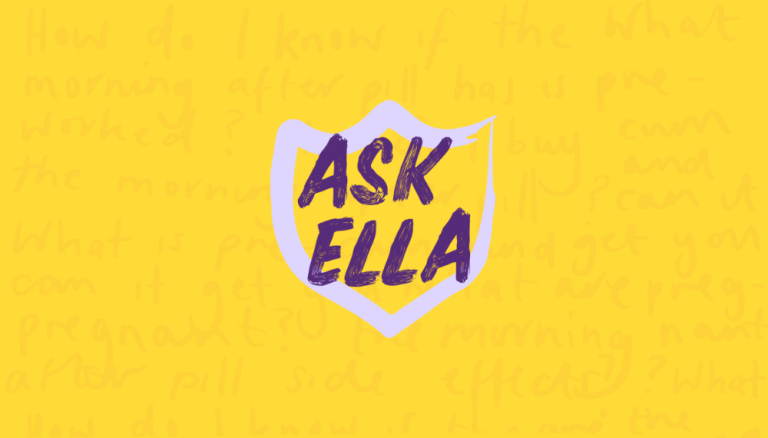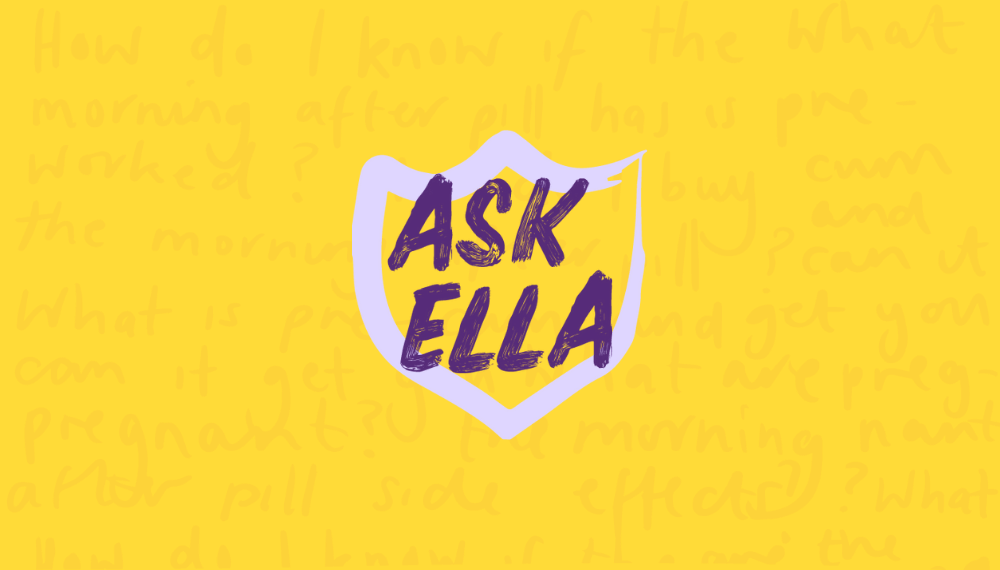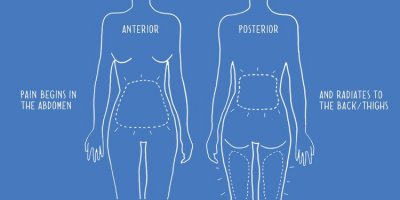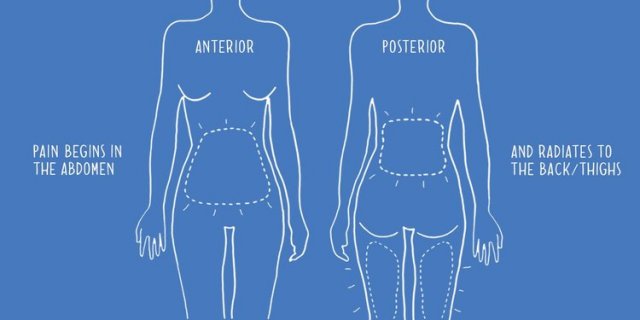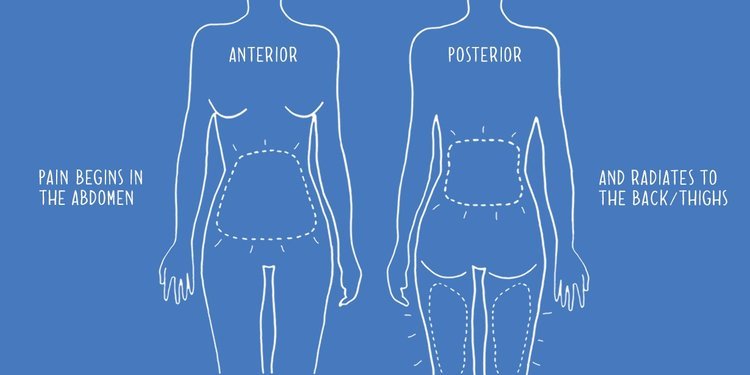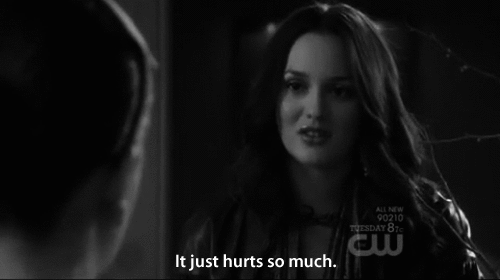If you are the proud owner of a uterus, you’ll be familiar with the wonderful bloody phenomenon that is menstruation. But as if it isn’t enough that you bleed every month, have to stash strategically hidden tampons in every bag you own, and ruin about ten pairs of knickers a year, your period can be painful. The question is: why?
In this #AskElla article, we will explain what causes period pains and how you can deal with them to make that time of the month a bit easier.
What Causes Painful Periods?
The clinical term used for period pains is called dysmenorrhoea and causes your uterus muscle to contract, causing pain and reducing blood flow.
Period pains can feel like cramps you may experience during early pregnancy, except they tend to be lower down the abdomen and back.
Side-note…. Bad news for everyone living in the year-round chilly little island we call UK. Apparently, periods last longer and tend to be heavier in the cold. So… who’s moving to Greece with us?
For many people period pains or cramps are a normal part of their monthly cycle. It is common to experience mild period pain in the lower abdomen just before or at the time when bleeding begins, usually lasting between 1-3 days.
So why are some periods more painful than others? Dysmenorrhoea can be either “primary” or “secondary”. Primary dysmenorrhoea is more common and the pain is caused by the period itself, while ‘secondary’ dysmenorrhoea is usually more serious and could point to an underlying health condition.
Secondary dysmenorrhoea is usually caused by an underlying health condition like endometriosis or infection. It also lasts longer than primary pains, usually beginning earlier in the cycle.
If your menstrual cramps stop you from living your life for a whole week out of every month, make an appointment with your GP to see if there’s anything that can be done to help.
How do I relieve my period pains?
Everyone is different, especially when it comes to our bodies. Whether you experience primary or secondary period pains, we can all agree that we are willing to do whatever it takes to get rid of them to feel a bit more like ourselves and bit less like the Hunchback of Notre Dame.
Here’s a few tried and tested period pain remedies which can ease your pain and help you get on with your day:
Medication
Ibuprofen, or any anti-inflammatory painkillers, can be an effective way to pain relief. The combined contraceptive pill or IUS are also known to help with menstrual pains.
Heat
Heat, in the form of a hot water bottle or heated patch, is a remedy that has been around for a while – one I’m sure your grandmother will be familiar with! Julie Levitt, an ob-gyn, explains that applying heat to your abdomen can help lessen your cramps as the heat relaxes your uterine muscles.
Diet
As with all things to do with the human body, a healthy low-fat diet is apparently a key factor in limiting the pain experienced during your cycle. Anna Druet and Clár McWeeney, from Clue, writes:
“One clinical trial of 33 women with menstrual pain found that women had less menstrual pain when they followed a low fat-vegetarian diet than when they were taking a placebo dietary supplement pill.”
Supplements
Magnesium is a nutrient which helps keep our bodies healthy and low level of magnesium can be one of the causes of period pain, so make sure you’re magnesium levels are on par ladies!
Magnesium can be found in the following foods; dark chocolate, avocados, almonds, bananas, spinach, quinoa.
Remember to be careful to take the correct dosage of magnesium if you do have low levels of the nutrient.
Some people believe Vitamin B1 helps with PMS. You can get your correct doses of vitamin B1 by eating foods which are rich in vitamin B1 such as; fish, asparagus, beef, lean pork, sunflower seeds.
While not medically proven, some people use Ginger to help alleviate period pains.
Exercise
We know that during your period you probably feel more like curling up in a ball and binging a boxset than doing squats, but before you skip this bit and scroll down the next “remedy”, let’s be clear.
We’re not telling you to run to the gym or attend a HIIT class. In this case, we’re classifying “exercise” as some light yoga and a few downward dogs or stretches. That sounds doable, right?!
Sex
Yes. We said it… Sex! Anna and Clár openly state that there is “anecdotal evidence that sex and orgasms can help with menstrual cramp relief”. Please keep in mind that you can still get pregnant on your period, so make sure to still use condoms when you’re surfing the crimson wave.
If you do have sex on your period and your regular contraceptive fails, ellaOne is more effective than morning after pills containing levonorgestrel* and can help delay ovulation and can be taken at any time of the month, including your period.
Not so fun fact: In Poland, they have a myth that having sex on your period can kill your partner. Maybe leave that out the next time you suggest an intimate evening of Netflix and Chill to your significant other on your period…
Self Care
This method is one we can all enjoy, and one we should try and use even when it’s not that time of the month. When you’re on your period you can feel a little fragile, so take the time to look after yourself. Chocolate? Movies? Pyjamas? A hot bath? Do whatever makes you feel good, it’s your body and you know what’s best.
If, after reading this, you do experience severely painful period cramps and symptoms that don’t seem to subside after trying out the various remedies, don’t work yourself up about it but definitely go to your GP or doctor to rule out any possible health conditions.
ellaOne® 30mg film-coated tablet contains ulipristal acetate and is indicated for emergency contraception within 120 hours (5 days) of unprotected sex or contraceptive failure. Always read the label.
